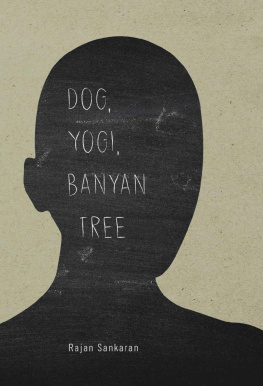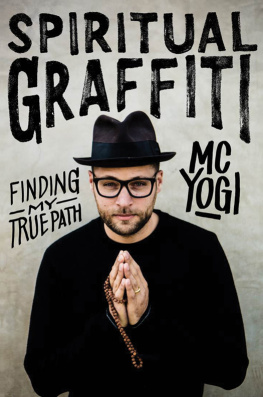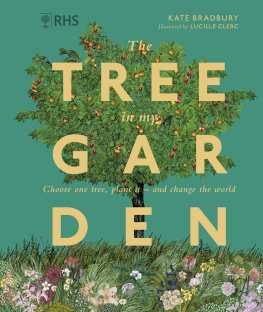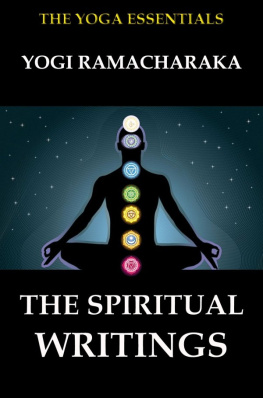
Rajan Sankaran
All rights reserved. No part of this publication may be reproduced, transmitted or translated into any language in India or abroad in any form or by any means without permission of the publisher.
Printed in India
First Edition: 2017
ISBN: 978-93-803556-5-8
Cover design
Lokesh Padmashali and Vatsala Bisen
of Open Strategy and Design
Printed by
Parksons Graphics Pvt.
Ltd. Taloja, Navi Mumbai
Published by
Homoeopathic Medical Publishers
201 Dinar, 20, Station Road, Santacruz (W), Mumbai-400 054, India
Tel: + 91-22-2605 8328, E-mail:
www.onlinehmp.com

To
my unsung Music Teacher
who taught me
how to sing
the song of life
Always have a receptive mind. Ever be ready to appreciate, learn and
understand. Learn from everyone, everywhere,
from every source, from every incident. Learn, apply and utilize.
Life is a glorious opportunity.
Utilize the opportunity to the maximum so that we can say at the end as
Hahnemann said, Non inutilis vixi (I did not live in vain).
My father, Dr. P. Sankaran (1922 -1979)
Acknowledgements
The values enunciated in this book have been inspired by my mother and father; my other teachers, seniors and colleagues; and some wonderful human beings that I have met along the way of my life.
Dr. J. N. Kanjilal, Dr. B. N. Chakravarti, Dr. S. R. Phatak, Dr. Roheet Mehta, Dr. K. Ramamoorthy, Dr. Sarabhai Kapadia, Dr. Juergen Becker, Dr. Bhanu Desai, Mr. S. M. Gunavante, Dr. Jayesh Shah, Dr. S. P. Koppikar, Dr. Jost Kunzli, Shri Laxman Jain, Ibrahimbhai, Father Dick McHugh, Misha Norland, Laurie Dack, Dr. Rina Markovits, Mike Keszler, Dr. Jutta Steinacker, Murray Feldman, Daksha and Hitesh Mehta, Maggi Lichi Grasi, Jyoti Heryani, David Warkentin, Dr. Roger Morrison, Nancy Herrick, Dr. Kees Dam, Dr. Praful Barvalia and so many others. And, of course, Divya with whom I have travelled the path of life for a quarter of a century now. I offer my heartfelt thanks to you all.
I am indebted to my gurus who have guided me on the spiritual path: Kanchi Mahaperiava, Sri Ramakrishna, Ramana Maharshi, Baba Nityananda, Yogi Ramsuratkumar, Mahatma Gandhi, The Dalai Lama, and Dr. Samuel Hahnemann.
Among those who have helped me write and review this book are Dr. Faiza Khan, Sonja Claas, Armeen Jasavala, Misha Norland, Dr. Meghna Shah, Dr. Manish Bhatia, Dr. Rina Markovits, Dr. Kshiti Mehta, Rajiv Mehrotra, Rajiv Bajaj, Soham, Sahaj, Dr. Amy Reed Goldman, Haresh Shah, Dr. Gentiana Ciubuc, Dr. Samuel and Lila Flagler, Dr. Mary Gillies and Susan Sonz.
The books that have inspired me are The Diving Bell and the Butterfly by Jean-Dominique Bauby, Tuesdays with Morrie by Mitch Albom, To Kill a Mockingbird by Harper Lee, and Gitanjali by Rabindranath Tagore.
I have also been inspired by the wise humor of Mark Twain, Groucho Marx and Louis C. K.
Carolyn Shanti edited this book. She took it as her mission to bring out the message that it seeks to convey and spent many hours talking with me in order to draw out its subtleties. Her contribution is invaluable. The final editing was done by Chinmayee Manjunath. Dr. Amy Reed Goldman gave it a fine polish while Lokesh Padmashali and Vatsala Bisen of Open Strategy and Design helped design the cover page. Mr. Haresh Shah, who has been involved with the production of my books for so many years, has worked painstakingly in the process of publishing this book.
This book is the result of the grace, wisdom and the love of so many wonderful beings. I feel humbled and blessed.
Dog, Yogi, Banyan Tree
Passing It On
Life is no brief candle to me. It is a sort of splendid torch which I have got a hold of for the moment, and I want to make it burn as brightly as possible before handing it on to future generations.
George Bernard Shaw
I landed in Zurich airport one cold, wintry day. The airport was, as always, spotlessly clean and very quiet. I made my way to the immigration desk and presented my passport. The officer behind the counter studied the passport, stamped it. She handed it back to me with a warm smile and the words, Happy Birthday.
More than twenty years have passed since that day, but I still often remember that smile and those words, from such an unexpected source.
Back home in Mumbai, I have noticed during my walks on the beach, which is outside my home in Juhu, a blind beggar with one leg missing. He sings every day in a loud, hoarse voice while drumming on a plastic can, hoping that someone will drop some money into the small metal pot that sits in front of him. Hardly anyone pays attention to him: his begging bowl remains mostly empty.
However, one day, something unusual happened. A young man, who looked like an affluent college student, sat next to him and accompanied the beggars singing by playing on a guitar. This was something novel for the beach-goers and attracted many onlookers. I noticed that the begging bowl was now full of coins. I felt then that this young man was the greatest musician I had ever encountered. He did not see his music as a means to exhibit his virtuosity but as an instrument to be of help to someone else.
We all live in a complex world; the human mind has made it so. It is a restless world. You see so much strife and exploitation, with each one out to grab as much as he or she can, so you feel you are missing out on something vital if you don't do the same. Yet we are inspired by incidents such as the one above. Somewhere deep within us, we know that these actions represent a set of values in which lies our true salvation.
Modern scientific advances have made everything so easy, yet life is still so stressful. As our gadgets become more sophisticated, we need also to know their limitations: although they can make things more comfortable, by no means do they make us peaceful. Our wisdom needs to develop at least as rapidly as our technology. As a wit said, This is a time of smart phones and stupid people! To remedy this, we need to connect as much to our inner-net as we do to the Internet.
To find the way inward where peace and joy really abide, one needs to navigate the confusing maze of this alluring but ultimately unsatisfying world. The map (or GPS if you will) is to be found in the universal, indwelling wisdom that is brought to light in each one of us, step by step, often facilitated by certain people and situations. We need to learn, as Rudyard Kipling put it, to Dream, yet let not dreams be your master. We have to learn to live and experience the dream of the outer world, yet know that it is but a dream and make the journey within.
Helping us rediscover our orientation, become centered in ourselves, are numerous situations and individuals in which and from whom we can find guidance. For many of us, the first guides in this journey are our parents, with their early role of nurturing and guiding us. The guidance component of either parent we can call the father component, and the nurturing one the mother component, irrespective of from whom it comes at a given time.
As we mature, we find other mothers and fathers, as it were, in various people. The fathers help us to develop various parts of ourselves and to grow as humans and beyond. Their guidance often comes not in the form of sermons but through their example, through actions that register far louder than words. They channel a wisdom that has been passed on to them from their own fathers, or something that has come to them from a deeper presence within themselves: what people of the faith would call the heavenly father. To silently pass on this legacy is the most valuable gift they give to their children.
Next page








